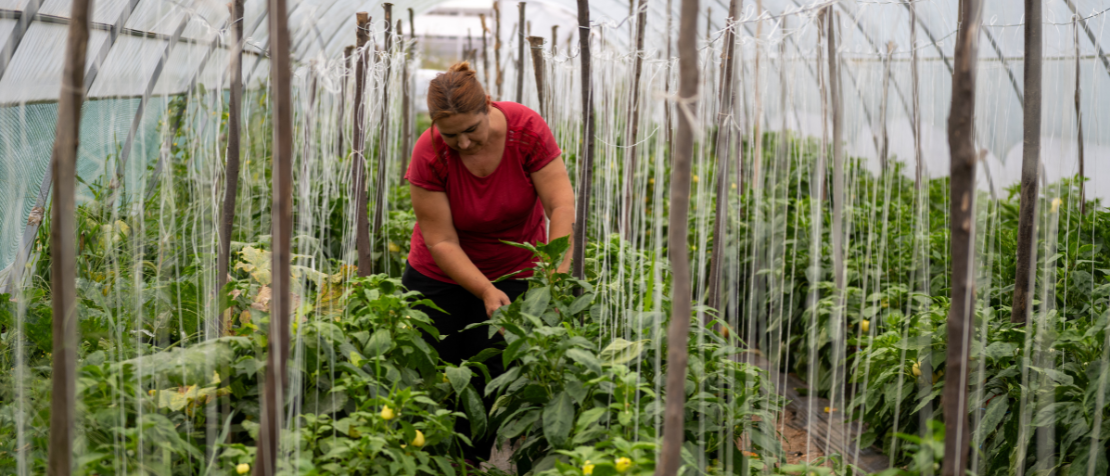FAO: Rural women are key to building resilience in agrarian areas

©FAO/Imrana Kapetanovic
The role of women in agriculture and rural livelihoods and the opportunities for their economic participation, financial inclusion, and contribution to climate resilience is the central theme of a roundtable discussion that will take place today in Sarajevo, Bosnia and Herzegovina. The event is part of the project “Women driving resilience in agriculture and rural areas,” implemented by UN Women and the Food and Agriculture Organization of the United Nations (FAO) with support from Sweden.
The roundtable discussion is scheduled for 15 October, the International Day of Rural Women for which this year’s theme is the role of rural women in conserving and protecting nature for our collective future.
As women are responsible for half of the world’s food production, it is everyone’s interest to ensure they have access to the critical resources necessary for agricultural production. Therefore, the event also brings together representatives from a wide array of sectors, including government officials, municipal leaders, civil society representatives, financial institutions supporting women-led businesses, private sector representatives, and international development partners.
Together they will look at gender mainstreaming in agriculture and the vulnerabilities of rural women to climate change. Presenters will highlight value chains with the greatest potential for rural women’s economic empowerment in the project areas, followed by a discussion on women’s collective organization for market participation. Participants will also discuss recommendations for women’s access to finance in agribusiness, outlining key priorities for financial inclusion and strengthening private sector support for women-led businesses in rural areas. Finally, the event will hear about plans for advancing women’s digital skills.
Rural women, typically responsible for a considerable share of agricultural activities and the nutrition of their families, are key agents of change in transforming rural areas and ensuring sustainable growth. Yet, their access to a range of services, tools and assets from land rights and credit to education and technology, is often hampered. According to data from the Food and Agriculture Organization of the United Nations (FAO), closing the gender gap in farm productivity and the wage gap in agrifood system employment would increase global gross domestic product by 1 percent (or nearly USD 1 trillion). This would reduce the number of food insecure people by 45 million.
Rural women are key change-makers in transforming rural areas and ensuring sustainable growth.
“Similar interventions that focus on empowering rural women by improving their access to technical knowledge, skills and economic opportunities are currently underway in Albania, Georgia, Tajikistan, Türkiye, and Uzbekistan,” said Dono Abdurazakova, Senior Gender and Social Protection Adviser at FAO. “Through these interventions, often implemented in partnership with UN Women, rural women get access to viable income-generating opportunities, decent jobs, participation decision making, and entrepreneurship. Addressing the situations and underlying assumptions about gender roles that create time poverty—when one feels overwhelmed with too many tasks and not enough time to accomplish them— helps to reduce the gender pay gap and women’s unpaid workload, and contributes to the empowerment of rural women.”
This year’s theme for the International Day of Rural Women is a bold call to build climate resilience, conserve biodiversity, and care for agricultural land to advance gender equality and empowerment of women and girls.
The project “Women driving resilience in agriculture and rural areas,” is aiming to remove the structural barriers of rural women through the introduction of time-saving technologies, and by linking them with innovative sources of financing. The initiative, launched in 2023, will improve living standards, as well as the socio-economic position of rural families.
